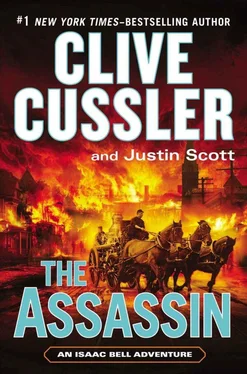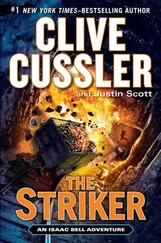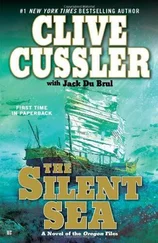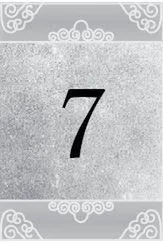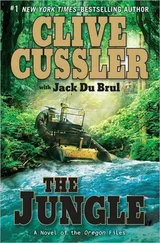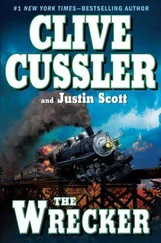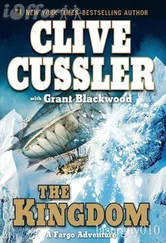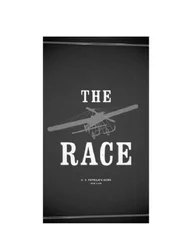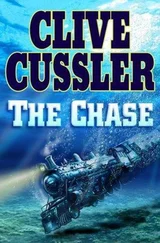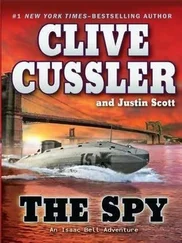Van Dorn clenched his fists. “If you feel so strongly that the intentions of a shilly-shallying Congress and a vacillating court are more important than my agency’s honor, you are free to resign your position and join Mr. Rockefeller.”
Rockefeller turned on his heel and headed for the door. “I’ll be at my estate in Westchester, New York, Mr. Bell, where you can call on me.”
* * *
The assassin entered the Washington Monument carrying a carpetbag and joined a group of men and women waiting for the elevator to take them to the top of the memorial shaft. They returned the bright smile and hearty hello expected of fellow out-of-town visitors and made room when the car arrived. Piloted by a self-important operator, who seemed to take pleasure in opening and closing the door at a glacial pace, it climbed five hundred feet in twelve slow minutes, a heart-pounding eternity of grating cables, wheels, and rails made even longer by the endless din of tourist chatter and the sudden exclamations as they spotted among the memorial stones that decorated the interior walls lumps of rock from their own states. It gets easier every day to be a snob, thought the assassin.
The door opened at last to the smell of turpentine and paint.
* * *
The so-called Lincoln Memorial was nothing more than a mud patch, and Clyde Lapham was having a hard time concentrating on the do-gooder’s speech. His eye kept wandering toward an exposed tree root that reminded him of a snake slithering up an Allegheny riverbank. The old man remembered the snake so vividly from his boyhood that he could smell the water and hear the flies buzzing around his head. He swore he saw its fast tongue exploring the air with expectant flickers.
“‘The Great Emancipator,’” the do-gooder droned in his ear. “‘Savior of the Union’… Fitting to rise opposite the monument to our first president, don’t you think, sir?”
“That snake…”
“Beg your pardon, Mr. Lapham?”
“You see that snake…” Lapham’s voice trailed off as he lost interest in whether the do-gooder raising money to build the Lincoln Memorial could see the snake. He could see the snake.
The do-gooder pointed at the Washington Monument. It was taller than a New York City skyscraper. Unlike New York skyscrapers, it stood alone. Far, far away. And far behind it, the dome of the Capitol rose into the sky like… like… he didn’t care what it was like. But here, in the mud, the snake.
He tried to remember why he was here instead of back in New York. The do-gooder wanted money from the Standard, and the boys at Number 26 had given him the job of riding the train down to Washington to reckon if it was the kind of thing Mr. Rockefeller would want to write a check to. Or so they said. Lapham had his suspicions. They just wanted him out of the office so they could cut him out of another private deal.
“How much money are you begging for?”
“Begging? May I quote Mr. Rockefeller himself on the subject of philanthropy? ‘I am proud,’ he said, ‘of my ability to beg money for the good of mankind.’”
“How much would this thing cost?”
“Well, sir, if Congress won’t act, it’s up to patriotic men of means like yourself and Mr. Rockefeller. As Mr. Rockefeller has undertaken to support many fine causes in his retirement—”
“Retirement?” Clyde Lapham snorted. “Rockefeller retired? You must be kidding…” His voice trailed off. He had just remembered they weren’t ever supposed to say that. He corrected himself. “Retirement. You’re right. He’s retiring. Retired. Retired. Goddamned-sure retired.”
The do-gooder, a churchman, recoiled at the sound of an oath.
“How much will this thing cost?” Lapham repeated.
“Well…” The do-gooder rubbed his hands. “Wouldn’t that depend, sir — Mr. Lapham — on the size of the monument?”
“Big as that one?” Lapham asked, pointing at the five-hundred-fifty-five-foot, four-sided obelisk erected to the memory of George Washington. He stared at it. His eye fixed on a barely visible square hole near the top. As the tree root reminded him of the snake, that square hole made him think of a wagon riding up the sheer wall of the pillar. He could even see the horses pulling it in the patterns of the marble building blocks.
“What’s that up there?”
“The monument?” asked the minister, who was beginning to realize that old Lapham was confused, to put it mildly. Too confused to contribute to his private Lincoln Memorial fund? Or confused in a way that might embrace the fund with open arms.
“Let us remember that magnificent edifice owes its existence to the private effort of the Washington Monument Society when good men like the good men of the Standard raised the funds that Congress failed to provide.”
“That square thing near the top… What the devil is that?”
“Oh, that’s one of the windows.”
“Windows?”
“People looking out that window will see the Lincoln Memorial right down here.”
“They better have good eyes,” said Lapham. He had lost sight of the wagon, but he could see a clear shot straight from that window to where he stood. “That’s the best part of a mile.”
“When Americans climb the stairs to honor President Washington, they will rush back down them to visit the Standard’s gift memorializing President Lincoln.”
“Damned fools should take the elevator.”
* * *
The assassin detached from the clot of tourists when the elevator door opened and they were shunted past a canvas curtain toward the observation windows that faced east, south, and north. The assassin slipped behind the curtain and put the carpetbag beneath the window that faced west. Stout metal bars had been installed in the window to stop suicides from launching themselves from it. They were set deep in the masonry six inches apart.
The window looked over the Mall, a grass-covered flat land that stretched almost to the Potomac River. At the far end, just before the river, was a stretch of raw mud where a Brooklyn minister — inspired by a previous generation’s Brooklyn Abolitionists — was attempting to collect contributions to build a memorial to Abraham Lincoln.
It was a thankless task that the Lincoln Memorial Association had been trying with no success since 1867. His target today, Clyde Lapham, could pay for the entire thing, being a charter member of the Standard Oil Gang. If he could only remember where he had left his checkbook.
* * *
Clyde Lapham forgot the snake in the mud and forgot the wagon on top of the Washington Monument. He was mesmerized now by the tip of the obelisk, a shiny point that was a different color than the marble. The marble was turning darker as it was silhouetted against the setting sun. But the tip glowed with an unearthly light.
The do-gooder churchman was rattling on again.
Lapham interrupted.
“Explain why the tip of the Washington Monument is a different color than the bottom?”
“It is made of aluminum,” said the churchman.
“Are you building something similar for President Lincoln?”
I’ve snagged a live one, thought the minister. If I can only land him.
“We have no design yet, sir. Congress fails to fund the memorial, so the money has not been allocated to pay for any proposed designs, and won’t be until private citizens step up and take charge.”
A closed carriage pulled up nearby. Two men stepped out and walked toward them. One carried a physician’s medical bag. He addressed Lapham, speaking slowly and loudly, “Good afternoon, Mr. Lapham. How are we feeling today?”
“Who the devil are you?”
To the minister’s astonishment, they seized Clyde Lapham by his arms and marched him forcefully toward the carriage.
Читать дальше
